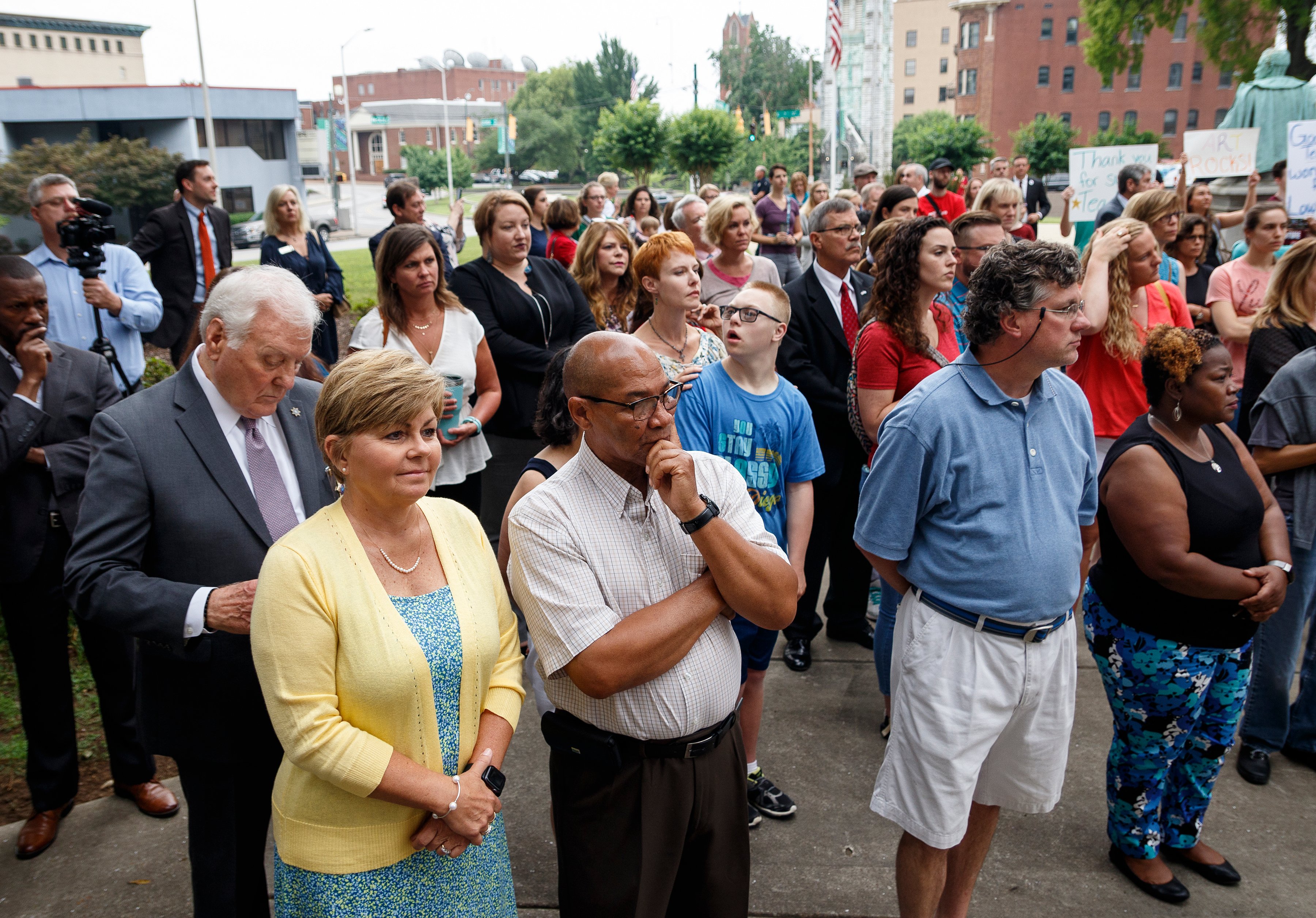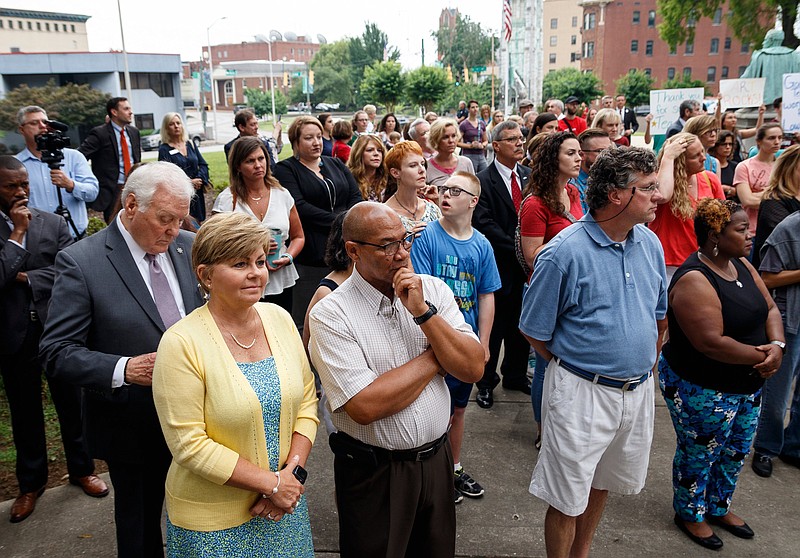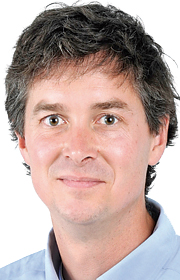In a summertime poll, nearly 65% of Hamilton County residents wanted a tax increase to fund education.
Yet in June, five county commission members - Randy Fairbanks, of District 1; Greg Martin, of District 3; Sabrina Smedley, of District 7; Tim Boyd, of District 8; and Chester Bankston, of District 9 - voted no.
More recently, a proposed referendum would allow county voters - you, me - to vote ourselves on an annual vehicle tax for education. It was pure democracy; our vote would directly shape policy. I cannot think of one moral reason against a referendum.
Yet the same five commissioners said no.
My God, this is beyond tiring. Such politics is so damaging, ossified and dysfunctionally dull. The school board - and 65% of us - beg: we need more money. The commission answers: we don't trust you with more money.
Yawn. Here we go again.
Something must change.
Here are two ideas.
First, give the Hamilton County school board funding power.
Allow the school board to raise its own funds by levying property taxes.
Currently, the school board only crafts its budget; it must come, hat in hand, to the commission for funding, creating a paternalistic, controlling model that sends the literal and figurative message: schools can't do it on their own.
"School boards should not have to educate and justify their needs to another group who are neither schooled in education issues nor held accountable for the school systems' success or failure," declares the North Carolina Schools Board Association, or NCSBA.
Most places in the U.S. give school boards such power.
We're the oddball here.
"Of the approximately 15,000 local boards of education nationwide, over 90% are fiscally independent," reported the NCSBA in a 2015 brief. "This is because school boards in most states are considered independent units of government."
If it's the norm across the country, why can't we do it here?
"Imagine your county property tax bill divided into two components: county services and education," writes David Moon in a 2018 Knoxville News Sentinel column.
Our state is one of only three in the U.S. whose school boards are legally forbidden from taxing, Moon reports.
Yet he sees a way.
"There is a state provision in Tennessee that allows a school board to force a referendum on a property tax increase to fund schools if two-thirds of the school board members vote for the tax increase," he said.
This can happen here.
 People watch a news conference outside the Hamilton County Courthouse which was held to support Hamilton County Mayor Jim Coppinger's fiscal year 2020 budget on Wednesday, June 5, 2019, in Chattanooga, Tenn. Mayor Coppinger later presented his budget, which calls for a tax increase for additional funding for schools, to the county commission.
People watch a news conference outside the Hamilton County Courthouse which was held to support Hamilton County Mayor Jim Coppinger's fiscal year 2020 budget on Wednesday, June 5, 2019, in Chattanooga, Tenn. Mayor Coppinger later presented his budget, which calls for a tax increase for additional funding for schools, to the county commission.Second idea?
Resurrect the city school system.
Because the city-county merger - formed in 1997 - is not working.
Most of our failing schools are city, or urban, schools. We are still segregated. A dollar spent at one school can be resented by another.
So let the county care for its own, and the city, too. Downtown is flush with money and, more importantly, ideas. Take all that energy around innovation and entrepreneurship and pour it into teachers, students and cutting-edge education.
"If we Chattanoogans want a high-performing school district, we must divorce ourselves from Hamilton County government," declared David Jones, a graduate of the old Chattanooga High, son of a public school principal, husband of a public school teacher and father of public school students.
Jones, who ran for the state Legislature in 2018, believes a city school system could, within 10 years, become a national leader in teacher pay and student performance. His plan, first announced in 2016, deserves attention. (Email him at david@davidjonesfortnhouse.com).
"We would need a world-class, non-educator CEO with world-class stature and world-class political skills to do the startup," he said.
Thankfully, such a man is in our midst.
"Bob Corker," he said.
Such an idea could allow Corker - the former Chattanooga mayor and U.S. senator whom Jones called "one of the most effective humans in the world" - to revitalize another type of riverfront. This time, he could lead an education renaissance.
"We have a once-in-a-lifetime opportunity to have a person with Corker's capabilities available to us here," he said.
This, too, can happen here.
* * *
On another note, it's important to announce the upcoming Remote Area Medical Clinic, or RAM.
On Nov. 16 and 17 at Camp Jordan in East Ridge, the absolutely free clinic will offer dental, eye and medical care, along with screenings, patient education and referrals, vaccines and addiction help.
No I.D. is required. Doors open at 6 a.m., yet numbers will be handed out at 3 a.m. Hundreds of people will travel hundreds of miles, which is both beautiful (so much care and attention given freely) and deeply sad (why do folks have to drive all through the night to get their teeth checked?).
For more information, visit ramusa.org or call 423-661-6700.
David Cook writes a Sunday column and can be reached at dcook@timesfreepress.com.

